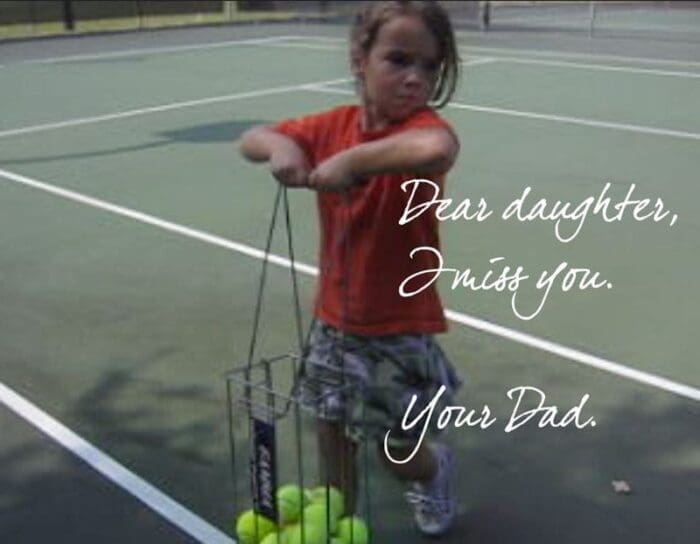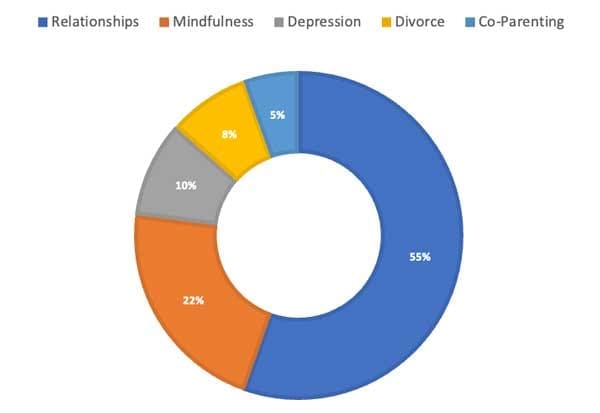“Where there’s a will there’s a way.”
That used to be a phrase my ex-wife used to use when complicating the matter of having sex. She would set out a series of conditions, mostly chores and requests that would make her feel loved, and if I would complete them before the kids got home from school… Well, then we might be able to fool around a bit. The pattern of behavior is known as conditional love. “I will love you when… I will love you if… I will not love you if you don’t…”
When you are in a relationship and chores become prioritized over simple kindness and affection, there’s a problem. But, one aspect of her challenge was correct. People make time, people save energy, people mostly do what they WANT to do. If your partner is starting to spend more time outside the relationship, make a note of it. If sex is becoming less frequent and more of an eye-rolling discussion (“Again? Can’t we just give it a rest?) then other things are being given priority in their life.
Prioritize Your Partner
As a couple there should always be a WE consideration before making plans that affect both of you. For example, if you’re picking up dinner while shuttling the kids to events, and you don’t include your partner in the food, or even tell them you’re feeding the kids, well… That’s sending a signal. It says, “fend for yourself.” And if you’re triggered it might say, “We’re fine on our own. You do your own thing.” Or my least favorite, “You can opt-out at any time.”
My phrase is “The carnival of happiness will continue, your participation is optional.”
When making plans with friends or family I always (100% of the time) check-in with my partner. Even when it’s my mom, I tell her, “Let me get back to you in a few minutes, I need to touch base with my partner.” This is more than just common courtesy, this is an alliance. When the alliance is between your partner and someone else, a best friend, a family member, a child, that too is information. And the message is clear: you are not the priority. And when the information or plans are withheld, the message is, “Head the warning, we will be fine without you.”
Before the Fall of My Marriage
In the year before my divorce, the mother of my children was furious at me. It wasn’t for something specific. It was more likely for everything. But there was one big fallacy in her blaming me for her unhappiness. I was not the cause of her anger and frustration 90% of the time. She was angry and frustrated at a lot of things. I happened to be the target. I was close. I was letting her down in “so many ways.” And as her primary partner, I was the closest person to target.
She would tell me, “Pay attention to what I’m saying. I am not happy.”
If I had been a bit more evolved emotionally, I might have been able to say, “Okay, so what are you going to do with your resentment and overwhelm?” But I wasn’t that clued in. I was confident that our marriage would survive. I was confident that I was doing all that I could to be a good partner, a loving father, and a competent bread winner. She had convinced herself that I was somehow the main cause of her pain and suffering. It’s not possible. We are 100% responsible for our own healing, happiness, and recovery from toxic shame and anger.
“Pay attention to what I’m saying.”
I get told frequently how much I am loved. And then find myself on the short end of the planning or inclusion. It’s as if there are two couples. One is our happy loving bond that is strong and well supported by words and actions. The second couple is in a power struggle about what activities, what relationships, what actions will be given priority. And when those priorities are set without a WE check-in, then I begin feeling the disconnect. I start listening to my ex-wife’s warning. I start wondering if I’m doing something wrong. I start wondering if I should start planning defensive measures in case things go downhill.
What Are You Putting First In Your Life?
In my life I have a number of competing priorities. (We all do.) But I am clear about one thing: my relationship comes first. My consideration of my partner is above all else. If something is making my partner unhappy, and I can control it, I do my best to course correct my behavior. If something makes my partner smile (flowers, love notes, coffee in bed) then I’m doing that in spades. (I already do.)
I would hope the same consideration would be given both ways. Sometimes that is not the case.
I can only give you an example from my life. Some time ago my mom invited me to a breakfast involving my two children. I asked that my partner be invited as well.
“They are not invited,” she said.
“Then I’m not coming.”
“Fine.”
It was a classic standoff that eventually resulted in a deep and emotional conversation a few days later. My mom was sad that she had done something to make me angry. I told her it was fine, but my partnership was more important than bending to her will to make her happy. In one clear moment, I put my partner, I put the WE, first. Even above my mother. I let my mom know that if I was invited and my partner was NOT invited, that I would probably not be making the event.
It’s not a question of “can I have a relationship with my mom without my partner.” Of course, I can continue to have loving and caring time with my mom, with or without my partner, but when making plans that would take me away from my partnership, I pause my outside agreements with others and get clear about my inside agreements with my partner.
When one partner is excluded there is a breakdown of trust. When one partner is excluded repeatedly, and there is no corrective action taken to realign with the WE, then a serious gap has been identified in the partnership. If the priority is this other person, these other plans, this other agenda, the message to the excluded partner is: “you are not my priority.” It’s never so black and white as it’s happening, but the message is clear every single time. “I’m going to go do this. You are not included. I will be back whenever we are done.” Adding, “I love you,” on the tail end of the fracture doesn’t build trust. The “I love you” becomes less believable.
If You Loved Me You Would…
This is never a good set up for any relationship. “If you would quit drinking I would be happy. If we had more money we would be happier. If the house were cleaner and there was more money in the bank I would feel safe.”
I cannot wait for my partner to change. I have several choices when patterns of behavior breakdown the WE and make it clear that I am not a top priority.
- I can leave and start over.
- I can just grin and bear it, building resentment, depression, and anger along the way.
- I can ask for a modification.
When I can get clear about what I need, it is up to me to make the request. When I make the request several times in several ways, and the situation continues down the disconnected path, then my options become more clear.
If you loved me you would put me first when considering a scheduling activity that affects us both. If you loved me you would let friends and family know it was not okay to exclude me in any way. If you loved me you would check-in as a WE partnership, as a natural first step before making plans.
And if you tell me you love me but continue to act in a manner that causes me pain, then I am going to get confused about the mixed messages. I’m going to think your alliance and priorities are with someone else.
One more example.
Back in the day, I had a shirt that I thought was funny and liked to wear as pjs. I told my partner that it had been given to me by an old girlfriend. After a few weeks, my partner said, that shirt reminds me of her. The next day I gave the shirt to Goodwill.
Are You Moving Towards or Away from Your Partner?
Doing something, or continuing to do something that causes your partner pain, is an act of either defiance, ignorance, or aggression. In this case, I was ignorant of the bad association with the t-shirt. When the minor irritation was brought to my attention, it was easy for me to make a choice. When my mom invited me without my partner it was easy for me to make a choice.
Little acts of disconnection grow into patterns of disconnection. Doing things that bum your partner out are worth looking at. Continuing to do them, when the request for modification has been made, is giving a clear message. Here are a few ideas of what that message might be.
- You are not the priority.
- Something I am getting from this behavior is more rewarding, more important, that the pain it is causing you.
- Your pain is not important.
- It’s not the right time to get into this. Let’s just go along with it for now.
The trick is to investigate these disconnections to understand what is driving your behavior. Are you moving away from the partnership? Are you putting other activities and relationships first, and leaving your relationship what’s leftover? It’s an essential inquiry, into your own motivations. And on the receiving end, in your motivations for staying even when the disconnective behavior continues.
I believe you are either building your relationship or you are discounting something about your relationship. Relationships do not sit still. Change is always coming. Covid was a HUGE change, and your relationship shifted as a result of this crisis. What have you learned? What have you prioritized in your life and relationship? Are there changes you want to make in your own behaviors? Do you need to ask for a behavior modification from someone in your life?
There Is No Right Time To Address Disconnections
If you believe you are in your long-term relationship, there is no time to waste in addressing disconnection and discord. A small message, “I am unhappy,” can build into “I want a divorce.” And if you don’t remain vigilant in protecting the relationship, and making your partner a priority, you might miss the messages and signals that are demanding a course correction.
Summary: If you find yourself thinking or saying, I’d be happy if you’d just… You need to get over the request and focus on yourself. If NOTHING CHANGES, would you be able to stay in this relationship? If the answer is no, you’ve got work todo.
*Always Love,
Always Love,
John McElhenney – life coach austin texas
Facebook | Instagram | Pinterest | @wholeparent
How about an intro call? (no obligation)
How I Can Help
My primary life coaching is the result of being a single dad, and this blog. My primary focus and specializations are relationship-building, communication skills, parenting, and co-parenting. I offer 1 x 1 zoom calls. If you have questions about life coaching I am happy to talk to you. Please schedule a free phone call HERE.
You can find all of my books on AMAZON.










